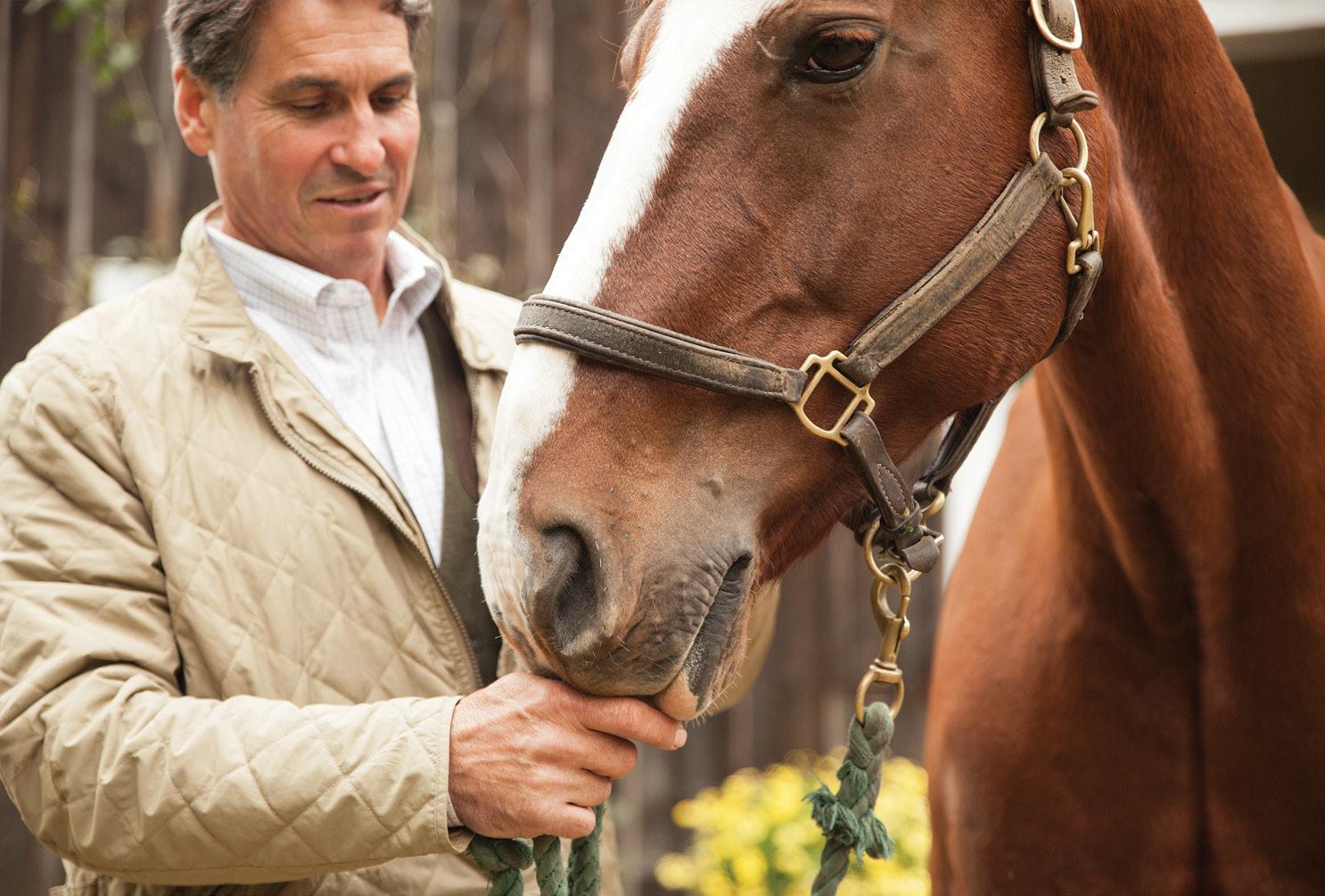
3 minute read
The Horse Healers
Riders, referees and enthusiasts alike keep a close eye on the welfare of Myopia’s polo ponies. / by Bill Burke
WHEN IT COMES TIME to caring for the four-legged athletes thundering up and down Gibney Field, the men and women of Myopia take a proactive approach to equine care.
“Myopia has some of the highest standards and regulations in the United States for the humane care of horses,” says Dr. Bryan Parrott, owner of Parrott Equine Associates and one of the founding members of the Myopia Welfare Committee. “We have a very active group of regulators who oversee the care of the horses on the field. They’re the most important aspect of polo, and we want the animals treated with kindness and respect—it’s always at the forefront of our consciousness.”
Founded six years ago, the Myopia Equine Welfare Committee—a group made up of polo players, equestrians, veterinarians, experts and longtime club members—ensures the safety and care of the horses remains a focus of everyone involved in the sport.
“Here at Myopia we are very well prepared to care for the horses,” Committee Chair Kim Maguire says. “If anything should happen, we are prepared to take care of it in the best possible way. We have the people and we have the training.”
The fast pace of the game and the physical nature of the sport can sometimes give the appearance of rough treatment. Play is closely monitored, however, and the horses are watched closely. It’s an approach that has not gone unnoticed on the national level. Many of the guidelines started here have been adopted by the United States Polo Association. Myopia’s rules on using artificial aids, core conditioning—ensuring the horses are healthy and fit to play—have been adopted by the national organization.
“All the professionals are given a set of guidelines they have to meet,” Parrott says of visiting players. “They have to read it and sign off on it and accept the guidelines, or they can’t play at Myopia. If ever a horse doesn’t look in good condition, they’ve accepted that they’ll remove the animal from the field and take care of it.”
The committee and other members of the polo community participate in a training event every year, led by a certified professional, to deal with horse emergencies should they occur. The committee has a wide range of equipment on hand in the event of an emergency, including an equine ambulance, slide boards that help move horses and a medical kit.
The Equine Welfare Committee was formed to better serve the needs of the animals who take part in the fast, exciting sport. While the game can move at a very fast pace and can be quite physical at times, riders, referees and others are keeping a constant close eye on the animals’ welfare. If a horse isn’t feeling right, it becomes apparent to the rider very quickly and a time-out is taken for the player to switch mounts. Steps are then taken to treat the horse.
“The responsibility of the rider is to not put the horse into a dangerous situation,” Advisory Committee Member Nick Snow says. “The players really love their horses, there is no other way to say it, so we are just here to echo pretty much everybody’s collective feelings on equine welfare.”
The Committee works closely with organizations such as the MSPCA to ensure the high level of care is ongoing.
“We strive for excellence,” Maguire says. “And most of the time, people are excellent. They can’t play at our club if they’re not. The horses are our teammates, and they’re 85 percent of the game. Their health is of the utmost importance.”










